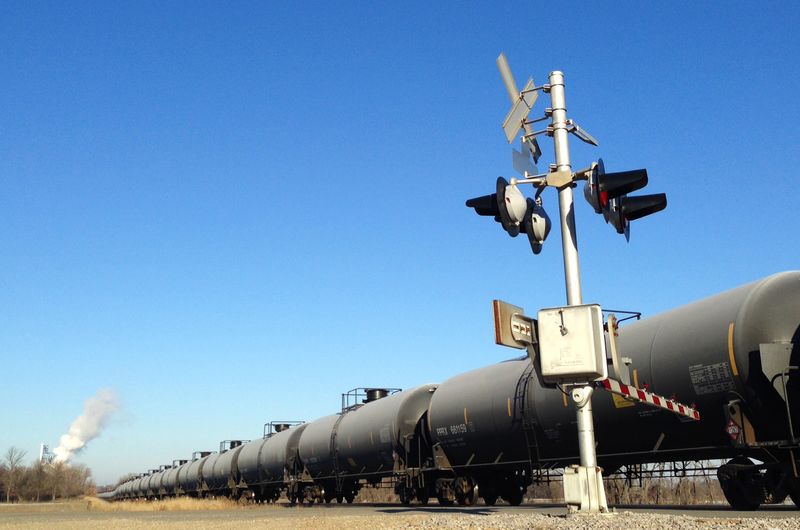(Corrects paragraph 3 to show Brent hit its lowest since November, not August)
TOKYO, June 22 (Reuters) - Oil prices rose on Thursday for the first time in three days after U.S. crude and gasoline stockpiles fell, but investors are looking for more signs that output cuts by OPEC and some other producers are ending a three-year glut.
The market largely shrugged off comments overnight from Iran's oil minister that members of the Organization of Petroleum Exporting Countries (OPEC) are considering deeper cuts in production.
Brent crude futures LCOc1 were 9 cents, or 0.2 percent higher, at $44.91 a barrel at 0018 GMT, after falling 2.6 percent in the previous session to their lowest since November.
U.S. crude futures CLc1 were 12 cents, or 0.3 percent, higher at $42.65 a barrel. On Wednesday, they settled down at $42.53, after touching their lowest intraday level since August 2016.
Since peaking in late February, crude has dropped around 20 percent, with only brief rallies, completely erasing gains at the end of the year in the wake of the initial OPEC-led production cut.
OPEC and other producers agreed to cut output by 1.8 million barrels per day from January for six months, subsequently extended for a further nine months.
With production rising in Nigeria and Libya, countries exempt from the deal, and output surging in the United States, which was not part of the agreement, the bulls have thrown in the towel.
And a bigger than expected cut in U.S. crude stockpiles reported overnight is barely shifting the dial.
Crude inventories USOILC=ECI fell 2.5 million barrels in the week to June 16, surpassing analysts' expectations for a decrease of 2.1 million barrels, as imports USOICI=ECI rose marginally by 56,000 barrels per day, the U.S. Energy Information Administration said on Wednesday. EIA/S
Gasoline stocks USOILG=ECI fell 578,000 barrels, compared with analysts' expectations for a seasonally unusual 443,000-barrel gain, which had been seen as bearish in the market.
Stocks of the motor fuel had also risen unexpectedly by 2.1 million barrels in the previous week, despite the start of the summer driving season.
